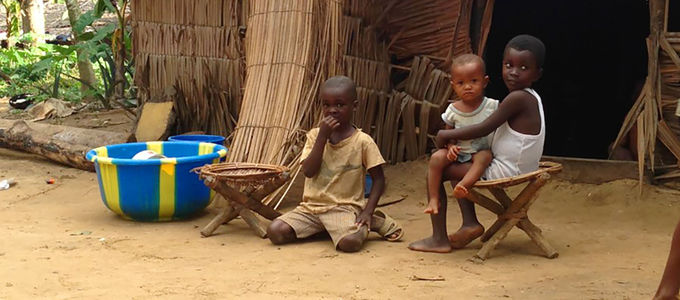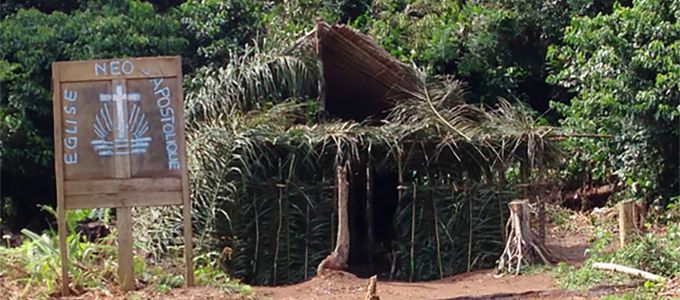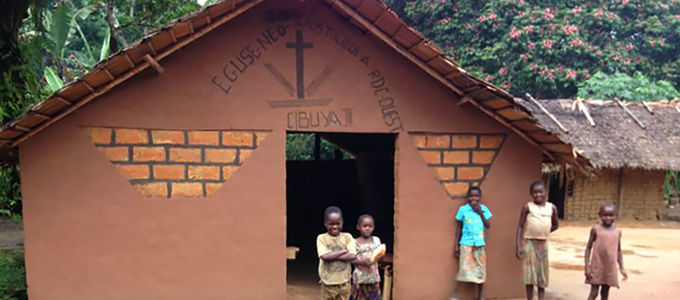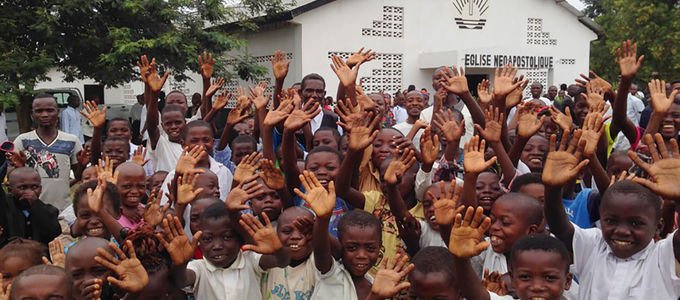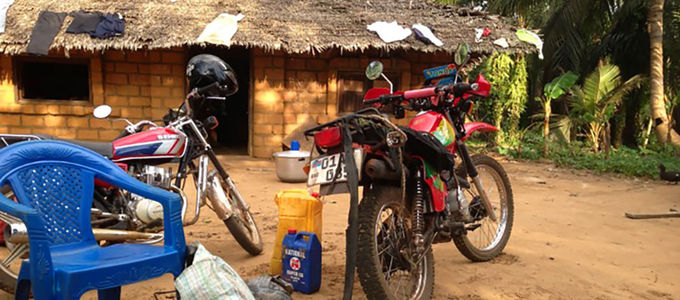
It is a country of superlatives—also for the New Apostolic Church. It is also a country of striking contrasts between rural and urban Africa: the Democratic Republic of the Congo. Here are some insights from a District Apostle whose best bet is often a motorbike.
There are probably very few District Apostles who consider their motorbike a company car. But without his motorbike, District Apostle Michael Deppner would not be able to reach some of the areas in his working area: the western part of the Democratic Republic of the Congo (DRC). The native Canadian gave a talk about his work on Pentecost in Washington at NAC Talks, an exhibition hosted by the New Apostolic Church USA.
A heavyweight on the map
The DR Congo is the second largest country in Africa. It is home to the second largest river by discharge volume and the second largest rainforest in the world. On the New Apostolic map the country is also a heavyweight: 2.5 million New Apostolic Christians live here, which represents more than a quarter of all members worldwide.
The official language is French, but the main languages that are spoken are Tshiluba, Swahili, Lingala, and Kikongo. If it were up to the proportion of native speakers, Tshiluba would be the international language of the New Apostolic Church. Among the seventy languages that are officially supported, Tshiluba is the one that is spoken by the greatest number of ministers.
Village life
Nearly two thirds of the country’s inhabitants live in rural areas: in villages scattered throughout the country. The people usually work in subsistence agriculture to feed themselves and their families. Only a small fraction of the crops are sold for cash.
Life in the country is very simple. There is little or no electricity. Sometimes there may be a generator. So there is no TV, but there are radios. It is social activities like weddings or funerals that bring people together and allow them to share information and experiences.
The infrastructure is not very developed. Social services, health centres, or schools are essentially maintained by religious or charitable organisations. Otherwise, groups of parents and village leaders get together in order to at least provide an elementary education for the children in the village.
New Apostolic life at the village level
Getting congregations started is easy, District Apostle Deppner says, but caring and maintaining them is more difficult. Congregations were usually started by brothers and sisters who went back to their home villages. But some congregations were also established because members set out to specifically introduce God’s work in a certain area. Music was often a key element in establishing congregations.
Usually, entire families join a congregation. The family makes the decision together whether to become New Apostolic—it is either all or none. The sacrament of Holy Sealing is dispensed in a larger setting, usually in a divine service in which several villages come together. Such a meeting is always a very special event …
In some places there are seasonal congregations: for example in fishing villages or on large farms. Once the season or the harvest is over, the migrant workers leave the area and the congregation folds up.
Young people throng into the cities
It is not always easy to provide a congregation with a solid church. Usually, a congregation starts out in a shed covered with palm leaves. Later this might evolve into a more permanent structure made from mud-brick. Piece by piece, the members of the congregation provide material for their church: from the wooden door to the altar cloth.
On account of the state of education in the country, it is not only difficult to find youth leaders and Sunday School teachers, but also ministers. In addition to spiritual gifts, such functions require educated people who have a good reputation in the village. “But we will find them,” says District Apostle Deppner.
Most young men and women who are educated and motivated want to leave their village and go to the towns where there are jobs and training opportunities. That means that there are rarely confirmations in small congregations, because they are often made up of either very young members or very old members.
Church life in larger villages and small towns is easier. But in big cities, church life can become dangerous. And Kinshasa, the country’s national capital, is a special case. More on this in part two of this article tomorrow.






